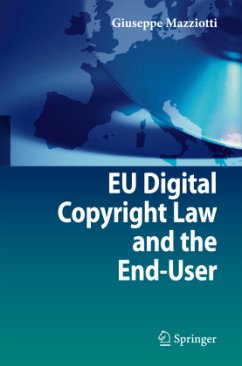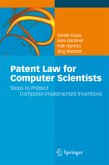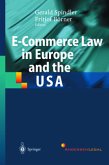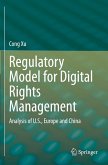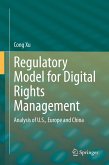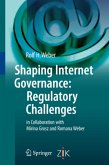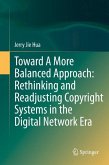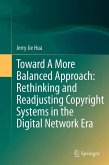This book draws on the contents of the Ph. D. dissertation I wrote and defended at the European University Institute (EUI) of Florence. At the beginning of my - search, I did not expect to write a book on the intersection between copyright law and digital technologies and, in particular, on the implications that digitisation presents for the interests of users of copyrighted works. At that time, I was neither an expert on new technologies nor an avid user who viewed the Internet as a "no copyright land" where anyone should download whatever content for free. Before graduating from the University of Perugia School of Law, I had established myself as a clarinet player who performed mostly chamber music and the symphonic r- ertoire. I had also worked extensively as a radio speaker, music critic and writer with the Italian public broadcaster RAI-Radio3. In performing all these mus- related activities, I developed a considerable interest for copyright issues and, when choosing my dissertation topic, I immediately opted for a work on copyright law that examined the economic rights of music performers under the Italian and the EU legal systems. I was very curious to see how and to what extent the law sought to protect the subtle, particular kind of creativity and originality embodied in musical performances. That was my first step towards writing a book on co- right law.
From the reviews:
"This book by Giuseppe Mazziotti draws on the contents of his PhD thesis. In general, it considers the intersection between copyright law and digital technologies. ... The formula of the book is uncomplicated yet effective. ... it is well sustained by a wide-ranging bibliography and reasonable index. ... is a worthy recommendation for law libraries. ... it will interest students and academics involved with copyright law and technological developments. It will also be of great interest for copyright lawmakers in the European Union [...]." (Ghufran Sukkaryeh, European Intellectual Property Review, Vol. 30 (II), 2008)
"[...] useful [...] for anyone wanting to understand the workings and implications of the EU InfoSoc Directive, in effect Europe's DMCA. More important, Mazziotti points out that the InfoSoc Directive and the application of the 3-step test for exceptions have potentially gutted certain rights to make a private copy under theEuropean private copying schema. Instead, he argues for more robust user-rights for both transformative and non-transformative uses. I support this conclusion." (David Lametti, http://www.cipp.mcgill.ca/blog/category/entertainment-law/)
"The book is clearly written and thus provides well-structured argumentation. ... Mazziotti makes recommendations on how the copyright law should be developed. ... Mazziotti's book offers an interesting approach to the European copyright debate. The author is well-informed and is able to skillfully describe the differences between different views." (Niklas Bruun, IPRinfo, Issue 5, 2009)
"This book by Giuseppe Mazziotti draws on the contents of his PhD thesis. In general, it considers the intersection between copyright law and digital technologies. ... The formula of the book is uncomplicated yet effective. ... it is well sustained by a wide-ranging bibliography and reasonable index. ... is a worthy recommendation for law libraries. ... it will interest students and academics involved with copyright law and technological developments. It will also be of great interest for copyright lawmakers in the European Union [...]." (Ghufran Sukkaryeh, European Intellectual Property Review, Vol. 30 (II), 2008)
"[...] useful [...] for anyone wanting to understand the workings and implications of the EU InfoSoc Directive, in effect Europe's DMCA. More important, Mazziotti points out that the InfoSoc Directive and the application of the 3-step test for exceptions have potentially gutted certain rights to make a private copy under theEuropean private copying schema. Instead, he argues for more robust user-rights for both transformative and non-transformative uses. I support this conclusion." (David Lametti, http://www.cipp.mcgill.ca/blog/category/entertainment-law/)
"The book is clearly written and thus provides well-structured argumentation. ... Mazziotti makes recommendations on how the copyright law should be developed. ... Mazziotti's book offers an interesting approach to the European copyright debate. The author is well-informed and is able to skillfully describe the differences between different views." (Niklas Bruun, IPRinfo, Issue 5, 2009)
"La Direttiva europea 2001/ 29/CE [...] ha inteso apprestare nuovi modi di tutela adattando le leggi sul diritto di autore all'ambiente digitale [...] Lo studio del Mazziotti approfondisce i criteri di questa nuova regolamentazione e ne esamina le conseguenze nel rapporto tra titolari di diritti di autore e diritti connessi ed utilizzatori finali delle opere. L'indagine si sviluppa attraverso vari capitoli nei quali si analizzano le problematiche del dilemma dei limiti all'utilizzo lecito delle opere tra tutela del copyright, eccezioni e limitazioni previste dalla Direttiva e dal Trattato Ompi sul diritto di autore del 1996, disciplina della concorrenza, liberta¿ di espressione e di informazione." (Mario Fabiani, IL DIRITTO DI AUTORE - Luglio-Settembre 2008 N. 3, http://www.rivistadirittodiautore.siae.it/documenti/EUDIGITALCOPYRIGHTLAW.pdf)

